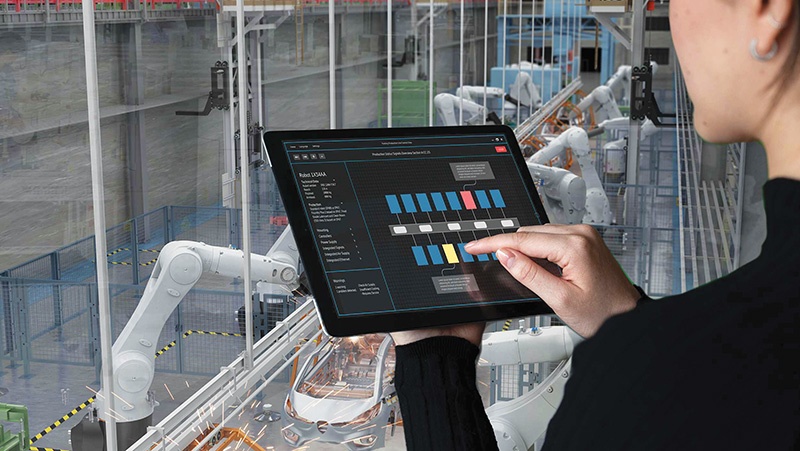Driving digital transformation of Vietnam with 5G
 |
| Denis Brunetti, president of Ericsson in Vietnam, Myanmar, Cambodia and Laos |
Ericsson has been a strategic partner to Vietnam since 1993, introducing every generation of mobile communication technology to the country – from 2G to the current 5G pilots and trials. We are proud to be connecting people, industries, and enterprises across Vietnam, aligned with the government’s vision and strategy on the accelerated adoption of Industry 4.0 and digital transformation.
Ericsson fully supports the Vietnamese government’s vision and strategic leadership in accelerating the adoption of Industry 4.0 across the country. With recent free trade agreements such as those with the European Union, the United Kingdom, and more, Vietnam is well-positioned to benefit from increased trade, whilst also attracting export companies to produce in Vietnam. At Ericsson, we are also aiming to leverage the developing component ecosystem in Vietnam to meet our global manufacturing requirements, integrating local suppliers into our global supply chains.
The next wave of socioeconomic development in Vietnam will be created through innovation, science, and technology, driven by the digital economy. A key component of Vietnam’s development strategy is the digital economy, which will contribute 25 per cent of GDP by 2025 and 30 per cent by 2030. It will also further enhance productivity in all key economic sectors.
The new digital economy will be created by scientific and technological advancements and innovation, particularly in areas such as 5G, AI, machine learning, automation, cloud computing, blockchain, and the Internet of Things (IoT).
Unlocking the potential
With our global scale and expertise, we look forward to continuing our journey in supporting Vietnam with expanded deployments of 4G and 5G networks. As we learned from the recent pandemic, mobile broadband digital infrastructure such as 4G and 5G is a critical national infrastructure that enables people to study and work remotely from anywhere. Indeed, 4G and 5G enable Vietnam to unlock the full potential of Industry 4.0 and will be the foundation upon which Vietnam can further build on its digital transformation journey and realise the government’s vision.
We are also committed to supporting Vietnam in becoming a regional and global smart manufacturing hub. Our ambition is further sharpened by the expectation that over two-thirds of global manufacturers will relocate to Asia-Pacific by 2025, with Vietnam clearly attracting a high number of these manufacturing opportunities. In order to remain competitive, create better experiences and services, and increase efficiency and productivity whilst also achieving sustainability goals, enterprises will increasingly require 5G connectivity that is global, reliable, and secure.
Manufacturing, transport/logistics, energy/utilities, healthcare, and education are sectors that represent huge opportunities for 5G. Coupled with Vietnam’s National Innovation Centre initiative, the government’s investment in sustainably growing the nation’s startup ecosystem will also contribute significantly to the country’s innovation capacity and the establishment of a thriving digital economy leveraging 5G as the enabling platform.
Ericsson and the Royal Melbourne Institute of Technology (RMIT) are collaborating for an education initiative on 5G in Vietnam that will help educate Vietnamese students on 5G and emerging technologies. We are opening the Ericsson Educate platform to RMIT students in addition to collaborating with the university for guest lectures, research projects, internships, and industrial projects as well as creating relevant opportunities for students to benefit from Ericsson’s technology and 5G leadership. This collaboration will enable RMIT’s science, engineering, and tech students to participate and contribute to the country’s digital economy and Industry 4.0 transformation.
 |
| Driving digital transformation of Vietnam with 5G |
A global front-runner
Ericsson will also leverage its global 4G and 5G deployment experiences and use cases from other markets to benefit Vietnam. An example from the manufacturing sector digitalising with mobile technology includes our own 5G Smart Factory in Texas, which has been recognised by the World Economic Forum as a global front-runner in Industry 4.0. The forum awarded the site with its prestigious “Global Lighthouse” designation in recognition of Ericsson’s deployment of next-generation tech at the site and its subsequent impact – including an impressive 2.2 times improved output per employee when compared to a similar site without the automation and Industry 4.0 improvements.
The solutions have been designed to solve challenges across a variety of different areas and generate tangible and significant business impact including cost reduction, improved uptime and quality, and much more.
Based on our studies, it is clear that digitalisation is a top priority for businesses. The possibilities that IoT and 5G create for enterprises will put them on a fast track to meet the demands of the new world, whilst also contributing to the sustained and inclusive socioeconomic development of the country.
By wisely taking a strategic decision to focus on science, technology, innovation, and embracing the accelerated adoption of Industry 4.0 through 4G and 5G capabilities, Vietnam is well on its way to creating a digital ecosystem that will attract high-tech foreign direct investment, helping drive the next wave of inclusive and environmentally-sustainable socioeconomic development across the nation.
What the stars mean:
★ Poor ★ ★ Promising ★★★ Good ★★★★ Very good ★★★★★ Exceptional
Related Contents
Latest News
More News
- PM outlines new tasks for healthcare sector (February 25, 2026 | 16:00)
- Ho Chi Minh City launches plan for innovation and digital transformation (February 25, 2026 | 09:00)
- Vietnam sets ambitious dairy growth targets (February 24, 2026 | 18:00)
- Masan Consumer names new deputy CEO to drive foods and beverages growth (February 23, 2026 | 20:52)
- Myriad risks ahead, but ones Vietnam can confront (February 20, 2026 | 15:02)
- Vietnam making the leap into AI and semiconductors (February 20, 2026 | 09:37)
- Funding must be activated for semiconductor success (February 20, 2026 | 09:20)
- Resilience as new benchmark for smarter infrastructure (February 19, 2026 | 20:35)
- A golden time to shine within ASEAN (February 19, 2026 | 20:22)
- Vietnam’s pivotal year for advancing sustainability (February 19, 2026 | 08:44)

 Tag:
Tag:




















 Mobile Version
Mobile Version